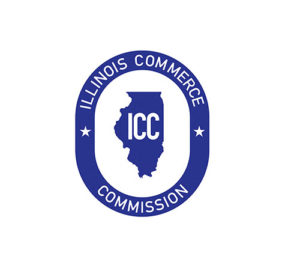National Industrial Transportation League Sees STB Reciprocal Switching Rule As ‘Missed Opportunity’
Written by David C. Lester, Editor-in-Chief
WASHINGTON –– The National Industrial Transportation League (NITL) is not pleased with the new reciprocal switching rule enacted by the STB.
Last week, we ran Railway Age’s story on the STB’s new Reciprocal Switching Rule. Shippers seem dissatisfied with the new rule, according to a press release by NITL.
NITL bills itself as “the nation’s leading trade association representing U.S. shippers that rely on rail freight transportation systems to competitively ship their materials.” The League announced this week that they see the new reciprocal switching rule, which has been debated for years, as a “missed opportunity.”
On April 30, the Surface Transportation Board released its final rule on “Competitive Switching for Inadequate Service.” According to the League, the new rule “intends to incentivize Class I rail carriers to improve rail service by allowing a shipper to ‘switch’ its traffic to an alternative railroad when the serving railroad fails to meet any one of three new service metrics adopted by the Board. NITL strongly supports the objectives of the rule as its members have faced serious rail service challenges in recent years. However, whether the rule will have a meaningful impact on rail service is questionable since the rule applies to only a very small fraction of freight rail traffic governed by railroad tariffs. The rule does not apply to the substantial majority of traffic which is transported under contracts or comprised of exempt commodities.
“The rule was issued nearly 13 years after NITL petitioned the Board to reform its existing reciprocal switching rules to facilitate greater railroad competition to address inadequate service and other supply chain challenges faced by U.S. businesses who are subject to railroad monopolies.
“Nancy O’Liddy, the League’s Executive Director, states that ‘NITL appreciates the efforts put forth by the Board in issuing this rule providing an option for shippers to seek service relief through reciprocal switching arrangements between Class I railroads. NITL is continuing it’s review of the rule and is encouraged by the improvements made to the service metrics. However, NITL members are extremely disappointed by its narrow scope because this option is not available for most shippers considering the vast majority freight rail traffic moves under contracts or is exempt from STB oversight. It remains unclear as to how many shippers will actually be able to use this new process.”
“The Board’s rule is a departure from the initial NITL intent of developing a new reciprocal switching process to facilitate greater competition in the freight rail industry to provide relief to U.S. business [that] pay increasingly higher prices for inadequate service because their facilities are served by only a single railroad. The NITL petition to the STB in July 2011 sought to improve efficiency and innovation in the industry, and address challenges, by replacing current regulations –– requiring shippers to prove “competitive abuse” to obtain a reciprocal switching remedy, a bar so high that no shipper has ever succeeded in getting a favorable ruling by the STB –– with a new rule that would restore the option for captive shippers to obtain competitive switching relief as authorized by the U.S. Congress.
“The League appreciates that the rule improves the service metrics as compared to the Board’s original proposal and requires the Class Is to permanently report to the Board certain service performance data as advanced by NITL. However, the League is concerned that the Board did not fully utilize its existing statutory authority to partially revoke exempt commodities nor seek additional authority from Congress allowing contract movements to benefit from the rule. NITL supports the separate concurrence by Board Member Robert Primus in this decision which raises legitimate concerns as to why the rule may have limited beneficial impacts on rail service.
“Moving forward, O’Liddy states that ‘NITL looks forward to working with the Board, Congress, and its members in implementing this rule. This rule, however, demonstrates the continued difficulty the STB has in providing more useful oversight in a timely fashion and in an environment of continued rail carrier consolidation and supply chain challenges. Congressional action is likely needed.'”





